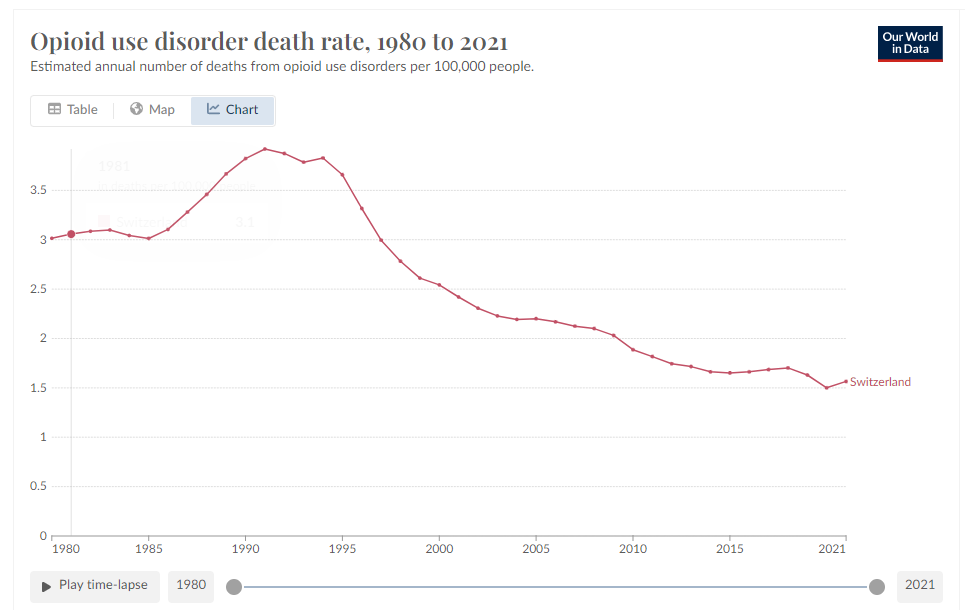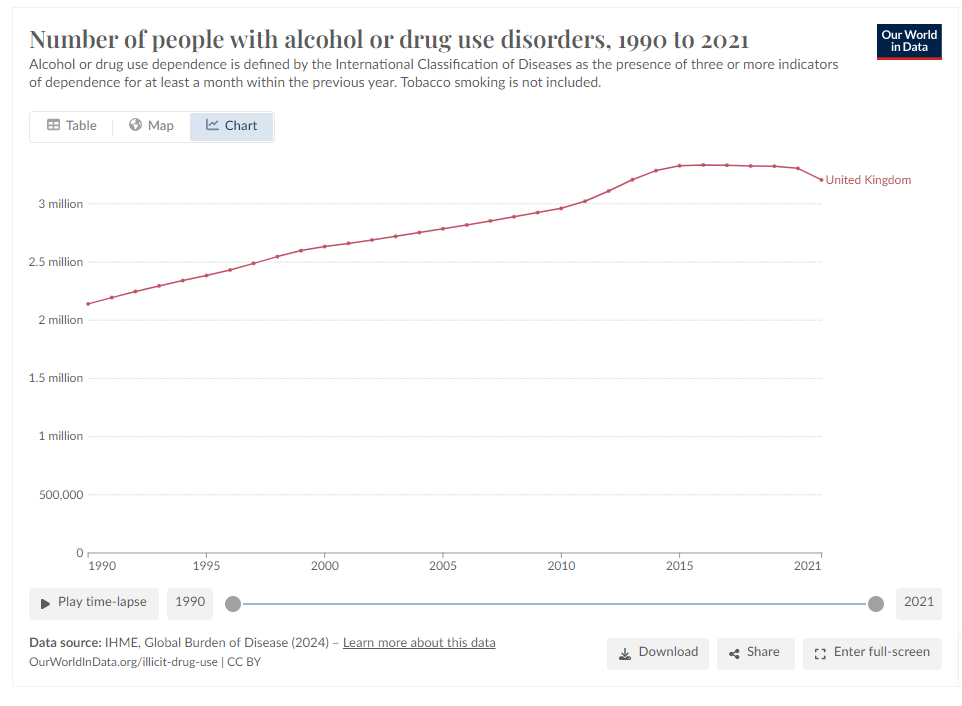In recent years, there’s been a push for the decriminalisation of recreational drugs. Psychedelics in particular are having their moment, after it’s been shown they can aid in the treatment of things such as PTSD, Depression, and Hacky Sack Playing deficiency. Research showing the positive benefits of magic mushrooms is hardly surprising to anyone who’s tried them. I’ve been sober for a few years, but leave some breathing room for the occasional psychedelic. Why? Because they’re wonderful.
Whenever anyone tries to explain psychedelic experiences to someone who hasn’t tried them, it always ends up sounding like a bad impression of a New Age cult leader. What you’re describing is ineffable, so you usually default to something like the feeling of “oneness” - which means precisely nothing to someone who hasn’t felt it. “Oneness? What does that even mean? Get out of here, hippie, and take your poncho with you”. It’s embarrassing to even try to describe - but I’ll give it a go anyway.
When I first sat in that park in Amsterdam (where it’s legal, relax mum), it felt like I was coming up for air, when I didn’t even realise I needed to breathe. It’s often that people on psychedelics are characterised as acting crazy - we’ve all heard the stories of people on LSD thinking they can fly, and jumping out of windows (I’m unsure how true they actually are). Ironically though, it really feels like you’re sane for the first time in your life.
It’s as if you’ve been living inside a storm in your day to day, and suddenly you’re thrust atop a mountain looking down on it. You can still see the storm, your thoughts are still swirling around, but your relationship with them has transformed. You’re an onlooker, far away, and you’re safe. You access a level of self compassion and freedom that is inconceivable in ordinary mental states. You also giggle a lot.
I bring this up because it’s one of the reasons I feel so frustrated with my country’s approach to drug legislation. Our drug laws are draconian, deaf to the evidence, and don’t even work. They’re a lose-lose, and seem to only be motivated by the inertia of bad past ideas.
Do They Even Prevent Drug Use?
The usual argument for strict drug laws are somewhat utilitarian. Yes, it would be nice if people used them sensibly, but a lot of people don’t, and it will tear apart society. If you can buy heroin at the corner store, no one’s going to go to work. Our kids will be crackheads! This is the future Liberals want!
It’s not an unintuitive belief, but it’s also not supported by the data. We take it on faith that these sorts of things would happen, but we really don’t have to. There are countries that have decriminalized drugs - we have case studies to look at.
In the 1990s Zurich has a problem. Platzspitz Park, also known as “Needle Park”, had become a heroin hot spot - with up to 3000 addicts a day using it. Visitors would walk past addicts sitting in their own blood and vomit, the park smelled, and gang violence was common. In other words, the strict drug laws of the time weren’t working so well.
Something radical needed to be done. Zurich began to provide substitution therapy to addicts, even going so far as providing heroin itself to heavy addicts. Social projects helped them find housing and got them back on their feet. Drug addiction began to be treated as a public health problem, and not a criminal problem. Here’s a glimpse into what happened.
In 1997, 70% of Switzerland voted against abstinence only drug policy in a referendum. Why? Because they had seen firsthand that it doesn’t work, and pragmatism is the way forward.
I think what the proponents of strict drug laws often forget is that drug addiction is not a moral failure. It’s not the case that the world is filled with people who ‘should know better’ but decide to do drugs every day because they’re lazy. No one wants to be a heroin addict. People become addicted to drugs because their life quickly spirals, and it becomes the only thing that brings them respite. It’s unsurprising that the solution is not to expect them to white knuckle it, but to give them a reason to start living again. When someone is sick, you don’t just tell them not to be sick, and put them in prison for failing to do so.
We Waste a Lot of Time and Resources
Building better social programs to help drug users sounds nice, but it also sounds expensive. I understand the sentiment - people don’t like their taxes being spent on others as it is, and it’s a hard sell to spend them on people that have a stigma associated with them. However, you know what else is expensive? Wasting so much time on policing people that aren’t hurting anyone. We already spend money on drug users, we’re just not doing so productively.
You’ll notice in this table that by far the most common crime is possession of drugs and not trafficking. Trafficking is the sort of thing I think there is a good argument for policing. Not an enormous amount of people do it, and the ones that do are usually seriously bad people. Possession, however, is not like that. I could name a very long list of people I know that have been in possession of an illegal drug at some point in their life, and almost all of them are functioning and upstanding members of society. These are not violent kingpins that are one bad conversation away from stabbing someone. This is your uni roommate who likes to have a smoke and play Fortnite for 6 hours.
How much police time and money is wasted on searching, arresting, and potentially sentencing these people? It’s hard to say exactly, but we know that in England alone £1.4 billion is spent per year on drug enforcement, with an additional £5.5 billion spent in the criminal justice system. 3 million criminal records have been issued since 1971, with 680,000 years of prison time served. That’s a lot of time and money. At least it’s decreasing drug use… right?
Hmmm, maybe all the Swiss addicts moved over here? That must be it.
Call me crazy, but I don’t want my taxes being spent stopping and searching people for small amounts of cocaine and cannabis. I’d rather the police do something useful with their time - or maybe we could just have fewer of them. I’m not someone who wants to defund the police blindly, but if they’re spending time doing this, and there’s nothing else for them to do, I’d rather we just save money by hiring less. Harassing non violent recreational drug users is annoying and costly.
This is not even mentioning the amount of money we can raise from taxing drugs. Drug dealers don’t pay much VAT, so there’s an enormous financial gain sitting on the table that we’re ignoring. Canada for example, made $894 million in tax revenue on cannabis alone from 2022 - 2023. I’d much rather the value generated be in the hands of government and legitimate business, than the hands of gangs and cartels.
Also, Kindly Piss Off
Maybe I’ve just read too much Michael Huemer, but I can’t quite shake the feeling that actually, no one should be able to tell me what I can put in my body in the first place. No, really, it’s no one’s damned business!
People might say that it’s for your own good. Drugs can ruin your life, and we need to make it illegal or you’ll hurt yourself. The problem with this justification is that it casts the net too wide. Should we outlaw cigarettes and junk food too? What about not exercising? Am I not free to drive because there’s a risk associated with it? This reasoning is applied inconsistently. Alcohol is terrible for you, but it’s not only illegal, it’s a bit weird if you abstain. People ask me why I don’t drink, but no one asks anyone why they do drink. I’m skeptical of the idea that the government should be protecting us from ourselves this much. We deserve autonomy. We’re adults, and should be able to make our own decisions about our health and bodies.
The fact that I’m unable to use a substance that has positive effects because some suit in Westminster has decided it’s evil is not only stupid - it’s unjust. It’s an assault on my freedom. The same way a law banning me from buying a McPlant would be - except it’s even more ridiculous because mushrooms improve your life and Mcdonald’s make you want to cry alone as you eat it in the car park.
Of course, this is an issue that demands nuance. There are enough factors that I imagine it wouldn’t be a good idea to have no regulation, and make every illicit substance as easy to obtain as bread. However, our current ‘solution’ is heavy handed and myopic. It costs money, wastes time, and fails some of society’s most vulnerable people. We’re plugging our ears, and hoping that if we sweep drug use under the rug it’ll disappear. I’m hopeful we can change, but we need to start implementing policy that’s driven by data, and not feelings.
Platzspitz, then and now.












